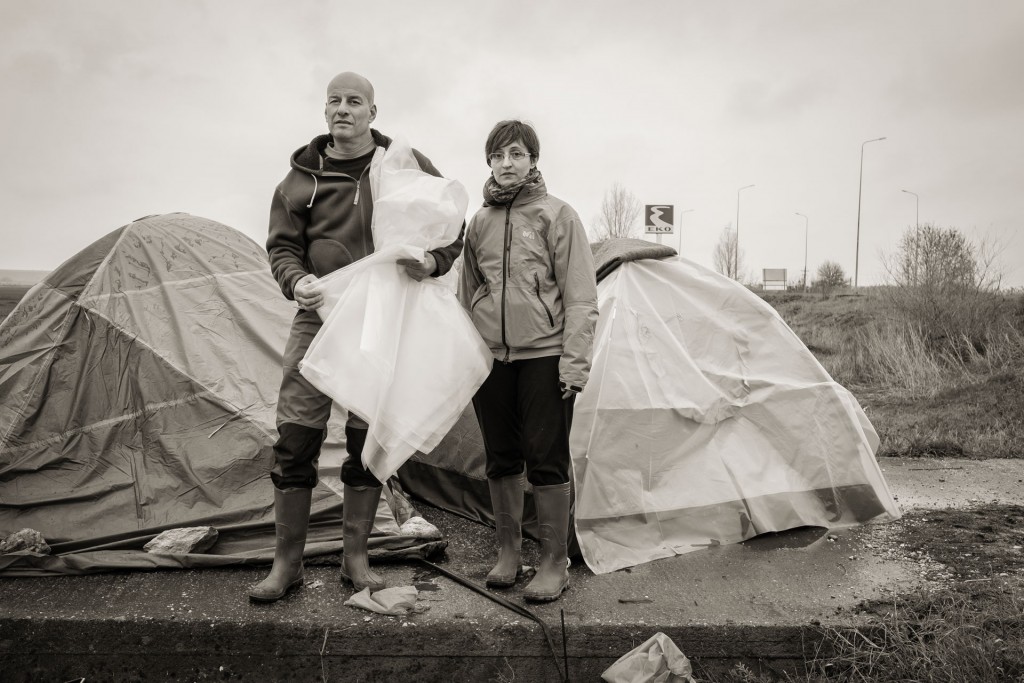I will always remember a young father from Afghanistan who was missing a leg. He has arrived in Idomeni three weeks prior with his two kids. They are all living in a tent on the muddy ground. I will always remember when he asked me what to do with just 300 euro left. At that moment, not being able to answer his question, I just looked at him back and put a plastic sheet on his tent.
I met Elisa and Geppe when they were cutting Nylon sheets to cover small tents of refugees around Idomeni. In the following days i saw them walking from wet tent to another offering and helping to put a new cover from the rain.
Elisa : the My name is Elisa Ghezzi and I am from Italy. I live in a small city, very close to the Lomabard Prealps, where my husband, Geppe Ticozzi and I run a bakery/pizzeria.
It has been a while now since we started to get involved in activities which put us in direct contact with asylum seekers/ refugees such as Africans.
We have been following the Dramatic Balcan Route development through the italian media. Being able to get free-time from work during the winter period, it hasn’t taken us much time to decide to go to the refugee camp situated in the Macedonia-Greece border in Idomeni.
Before going there we made some research, reading other testimonials about the Syrian and Afghanistan refugees situation in Greece. We wanted at least to be psychologically prepared to see the suffering in their faces, the hopelessness in their expressions. To be prepared for the place where Europe’s principles and morality values collapsed .
I was born in 1980. When I went to school I studied about the World War 2 and the Geneva Convention. My understanding was that as result of this war our European Union’s policy, actions and measures would always be based on human rights developed. Unfortunately, my personal view of a United Europe has been distorted even before going to Idomeni, but I have never thought I would see such a Humanitarian Disaster.
My relatives and friends have been supporting us because they knew us, they knew we wanted to go there and to experience what Humanitarian Disaster means in the Twenty-first century.
The first day we arrived in Idomeni, we didn’t even look at each other. The mental burden on our shoulder, was just too heavy. I felt the Human Rights are lost in the Idomeni refugee camp.
We were trying not to speak too much with the refugees due to the fact that all the discussions would have ended with the same question: “what would you suggest us to do?”
I will always remember a young father from Afghanistan who was missing a leg. He has arrived in Idomeni three weeks prior with his two kids. They are all living in a tent on the muddy ground. I will always remember when he asked me what to do with just 300 euro left. At that moment, not being able to answer his question, I just looked at him back and put a plastic sheet on his tent.
Now, being at home, every time I look at my kids while we are sitting all together around the table near the hot stove, i remember the eyes of the sons of this Afghan father inevitably come into my mind reminding me the strong feeling of absolute helplessness and frustration.


Would you like to share your thoughts?
Your email address will not be published. Required fields are marked *